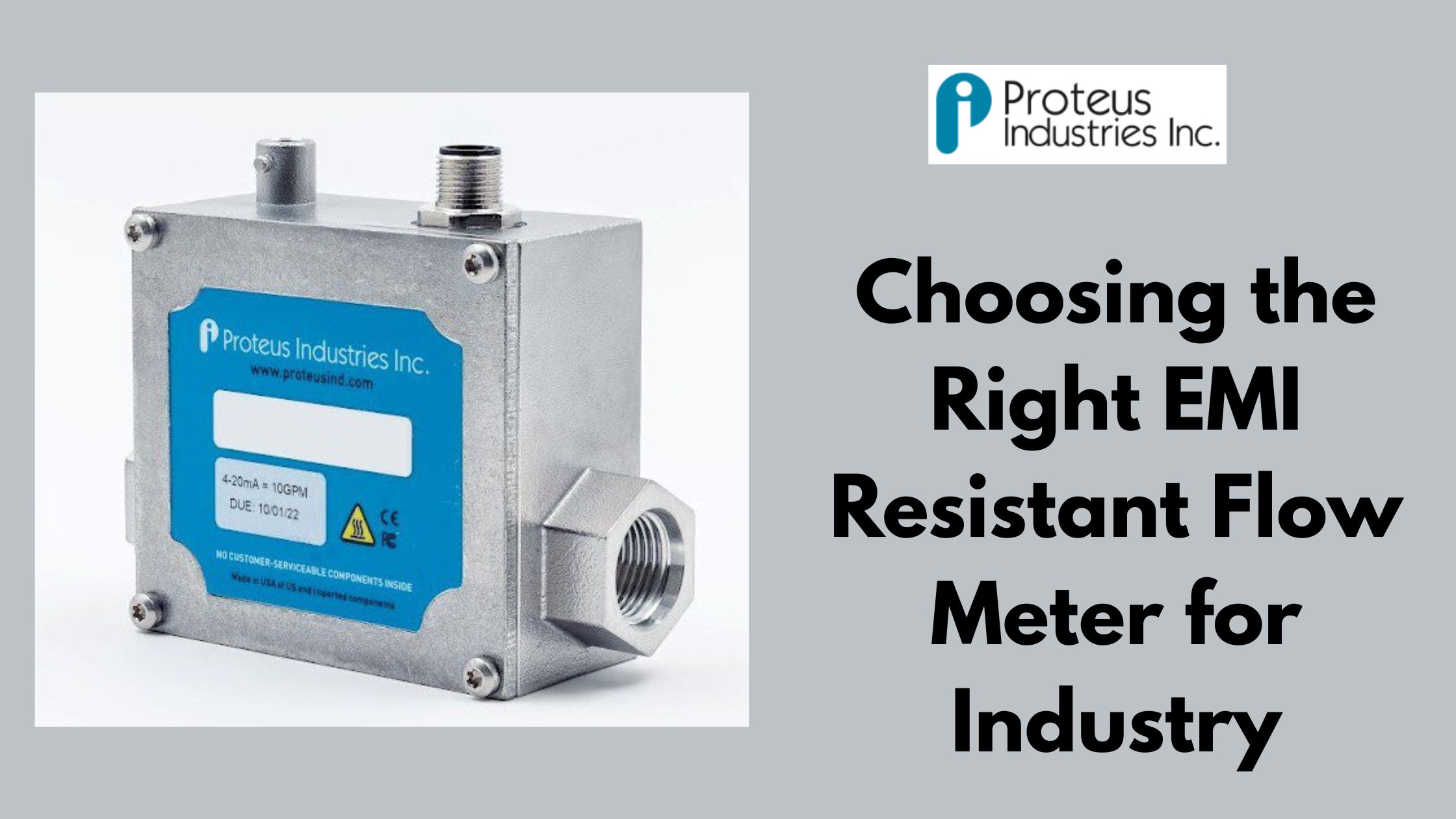Electromagnetic interference (EMI) is a type of electrical noise that can disrupt sensitive electronic equipment. In industrial environments, EMI from motors, variable frequency drives, heavy machinery, and power lines can significantly affect the performance of flow meters. Inaccurate readings caused by EMI can lead to inefficiencies, safety risks, and costly downtime. To overcome these challenges, industries are turning to the EMI resistant flow meter, specifically designed to maintain reliable and precise measurements in electrically noisy environments. This article aims to guide readers in selecting the right EMI resistant flow meter for their industrial applications, ensuring accuracy, efficiency, and long-term operational stability.
Understanding EMI Resistant Flow Meters
An EMI resistant flow meter is a specialised instrument engineered to function accurately in environments with high levels of electromagnetic interference. Unlike conventional flow meters, it incorporates shielding, grounding, and noise-filtering technologies to prevent signal distortion. These meters maintain uninterrupted performance even near strong EMI sources, providing precise and stable readings. By combining robust construction with advanced electronics, EMI resistant flow meters ensure reliable monitoring and process control, making them a critical choice for industries where measurement accuracy and operational consistency are essential. Their design allows seamless integration into existing systems while minimising errors caused by electrical noise.
Why Industries Need EMI Resistant Flow Meters?
Industrial facilities face numerous EMI challenges that can disrupt flow measurement. High-powered equipment, motors, welding machines, and RF transmitters generate electromagnetic fields that interfere with standard meters. This interference can cause inaccurate readings, leading to faulty data logging, inefficient processes, and even safety hazards. For instance, in chemical processing, minor flow errors can result in product inconsistencies, while in water treatment plants, they can compromise system control. By using an EMI resistant flow meter, industries mitigate these risks, ensuring accurate measurements, smoother operations, and compliance with safety and quality standards even in high-noise environments.
Key Features to Look for in an EMI Resistant Flow Meter
When selecting an EMI resistant flow meter, several features are crucial for optimal performance. Accuracy and stability in high EMI conditions are essential to maintain reliable data. The meter should be constructed from durable materials to withstand industrial wear, chemical exposure, and temperature extremes. Compatibility with a wide range of fluids—liquids, gases, and slurries—is also important for versatile applications. Additionally, ease of installation and seamless integration with existing control systems ensure smooth operation. Advanced shielding and filtering technologies further enhance measurement integrity, making the flow meter a dependable choice for demanding industrial processes.
Factors to Consider When Choosing the Right Meter
Choosing the ideal EMI resistant flow meter depends on multiple factors. Consider the type of industry, whether manufacturing, oil & gas, water treatment, or chemical processing, as requirements vary. Assess the flow range and fluid properties to ensure compatibility. The operating environment, including temperature, vibration, and EMI levels, is also critical. Balancing budget with performance is essential—investing in a high-quality meter reduces long-term maintenance costs. Finally, verify the manufacturer’s reputation, technical support, and compliance with industry standards to ensure reliability, safety, and accurate performance in your industrial application.
Benefits of Choosing the Right EMI Resistant Flow Meter
- Reduced Downtime
An EMI resistant flow meter prevents interference-related malfunctions, ensuring continuous operation. This minimises unplanned shutdowns in industrial processes, allowing plants to maintain productivity, meet deadlines, and avoid costly delays caused by equipment failures in electrically noisy environments.
- Minimised Maintenance Costs
Because EMI resistant flow meters are designed to withstand electromagnetic interference, they experience fewer errors and breakdowns. This reduces the need for frequent repairs or recalibration, lowering maintenance expenses and freeing technical staff to focus on other critical operational tasks.
- Improved Operational Efficiency
Accurate measurements from EMI resistant flow meters help optimize process control. Reliable data ensures precise flow adjustments, reducing wastage, preventing overuse of resources, and enabling smooth industrial operations, ultimately enhancing overall productivity and efficiency.
- Enhanced Process Reliability
By delivering stable readings even under EMI-heavy conditions, these flow meters ensure processes run consistently without interruptions. Reliable flow data reduces the risk of errors, supports automation, and maintains continuous system operation, critical for high-stakes industrial applications.
- Better Product Quality
Precision flow measurement helps maintain exact formulations, temperature control, and production consistency. EMI resistant flow meters prevent measurement deviations that could compromise product quality, ensuring industries meet standards, reduce defects, and satisfy customer expectations.
- Long-Term Savings
Investing in a durable EMI resistant flow meter reduces repeated replacements and repairs. The extended lifespan and consistent performance lower the total cost of ownership while avoiding costly process disruptions and improving return on investment over time.
- Regulatory Compliance
Industries must adhere to safety, environmental, and quality standards. Reliable EMI resistant flow meters provide accurate, auditable data that supports regulatory compliance, avoiding fines, legal issues, or operational restrictions while maintaining safe and controlled processes.
Conclusion
The EMI resistant flow meter is a critical tool for industries dealing with electrically noisy environments. By resisting electromagnetic interference, these meters provide accurate, stable, and reliable measurements essential for process control, efficiency, and safety. Selecting the right meter requires considering industry type, fluid properties, operating conditions, and budget. Investing wisely in an EMI resistant flow meter ensures reduced downtime, improved productivity, and long-term operational stability. Industries that prioritise measurement accuracy and system reliability will find these advanced meters indispensable for maintaining high standards and achieving efficient, safe operations.

